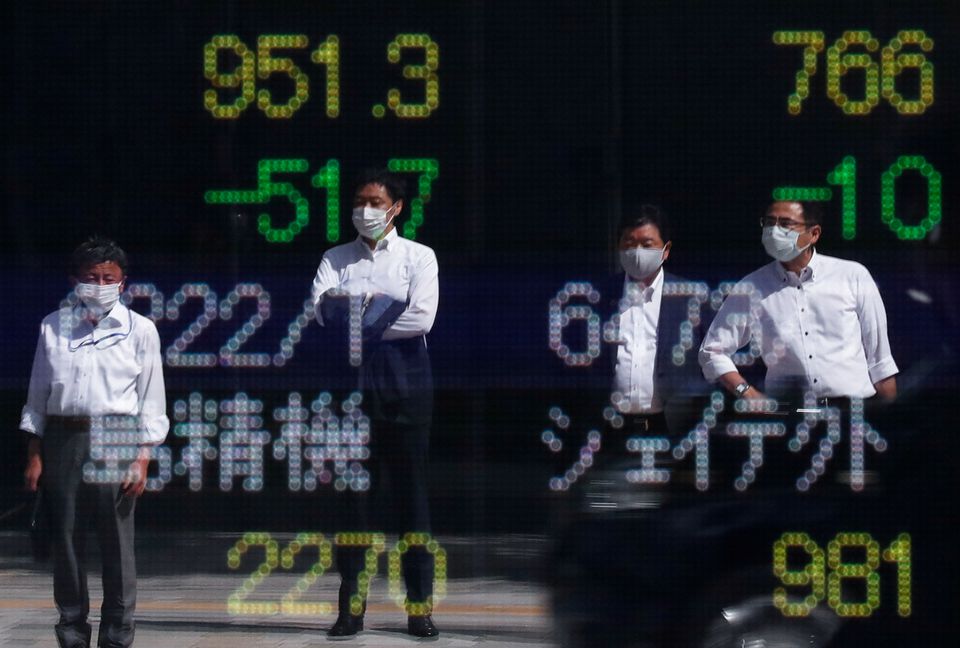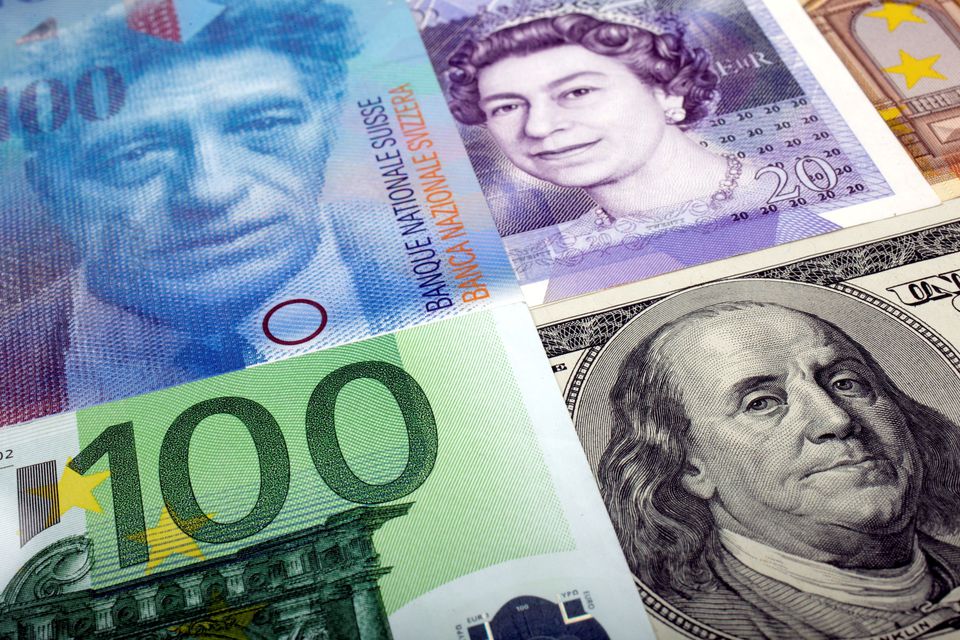WORLDWIDE: HEADLINES
China asks Didi to delist from U.S. on security fears

Chinese regulators have asked top executives of ride hailing giant Didi Global Inc (DIDI.N) to devise a plan to delist from U.S. bourses on Security fears, Bloomberg News reported on Friday.
China’s tech watchdog wants the management to take the company off New York Stock Exchange owing to concerns about leakage of sensitive data, the report said, said citing people familiar with the matter.
Didi did not respond to a Reuters request for a comment.
Full coverage: REUTERS
Tesla to invest $188 mln to expand Shanghai factory capacity

Tesla Inc (TSLA.O) plans to invest up to 1.2 billion yuan ($187.91 million) to expand production capacity at its Shanghai factory that will allow it to employ 4,000 more people at the site, state-backed Beijing Daily newspaper reported on Friday.
The newspaper attributed the information to a Shanghai government platform for companies’ environmental information disclosures.
The investment amount was redacted in the document Tesla published on Nov. 23 on the platform when Reuters accessed the document on Friday.
Tesla did not respond to a Reuters request for comment.
The filing showed that expansion will allow Tesla to add 4,000 staff, taking the number of people the plant can employ to 19,000. There will be no change to the models the factory currently produces, according to the filing, which also did not specify how much production capacity will be increased.
Tesla’s Shanghai factory was designed to make up to 500,000 cars a year, and currently has the capacity to produce Model 3 and Model Y vehicles at a rate of 450,000 total units a year.
The automaker’s China sales are surging even though regulatory pressure is mounting following consumer disputes over product safety and scrutiny over how the firm handles data. Last month, Tesla said it had built a research centre and a separate data center in Shanghai to store data locally.
Full coverage: REUTERS
WORLDWIDE: FINANCE/MARKETS
Stocks slip, havens rally as new COVID-19 variant spooks investors

Stocks fell and headed for their largest weekly drop in nearly two months on Friday, while safe haven assets such as bonds and the yen rallied as a new virus variant added to swirling concerns about future growth and higher U.S. interest rates.
The variant, detected by scientists in South Africa, may be able to evade immune responses and has prompted Britain to hurriedly introduce travel restrictions on South Africa.
South Africa’s rand fell 1% in early trade, as did U.S. crude futures . S&P 500 futures fell 0.4%, while the risk-sensitive Australian and New Zealand dollars dropped to three-month lows.
“The trigger was news of this COVID variant…and the uncertainty as to what this means,” said Ray Attrill, head of FX strategy at National Australia Bank in Sydney. “You shoot first and ask questions later when this sort of news erupts.”
Japan’s Nikkei (.N225) was down 1.7% in early trade and Australian shares (.AXJO) fell 0.6%.
MSCI’s broadest index of Asia-Pacific shares outside Japan (.MIAPJ0000PUS) was down 0.2% for a weekly fall of 1% and world stocks (.MIWD00000PUS), while still near record highs, headed for a weekly fall of 0.7%, the largest since early October.
Little is known about the new variant. However scientists told reporters it has “very unusual constellation” of mutations, concerning because they could help it evade the body’s immune response and make it more transmissible.
Full coverage: REUTERS
Yen rallies, rand sinks as new COVID variant spurs flight to safety

The safe-haven yen rallied and the South African rand tumbled on Friday as investors turned cautious after Britain raised the alarm over a newly identified coronavirus variant spreading in the African nation.
The yen leapt as much as 0.56% to 114.68 per dollar, while the rand slumped to a more than one-year trough at 16.17 per dollar as concern flared about the B.1.1.529 variant, which might make vaccines less effective.
The risk-sensitive Australian dollar slid as much as 0.33% to a three-month low of $0.71265, ignoring a much-better-than-expected climb in retail sales.
“COVID worries are definitely playing a role in increasing demand for safe havens including the yen, and because South Africa is the location of this new variant, that’s an obvious reason to avoid the rand,” said Shinichiro Kadota, senior FX strategist at Barclays in Tokyo.
The British pound slipped to a new 11-month low of $1.3305.
Meanwhile, the euro rose 0.12% to $1.12185, stabilizing after hitting its lowest level in nearly 17 months earlier in the week at $1.1186. Germany is considering following Austria’s lead and reimposing a COVID-19 lockdown with the continent once again the epicentre of the pandemic.
The dollar index – which measures the greenback against six peers, including the yen, euro and pound sterling – edged further away from Wednesday’s 96.938 – its highest level in nearly 17 months. It last traded at 96.715.
However, it was up 0.73% on the week, still headed for its fifth straight weekly gain.
Traders have ramped up bets that an increasingly hawkish Federal Reserve will lift rates by the middle of next year, while central banks in Europe, Japan and elsewhere stick to more dovish stances.
Full coverage: REUTERS
Oil skids on concerns of rising surplus in Q1

Oil prices slid more than 1% on Friday on concerns that a global supply surplus could swell in the first quarter following a coordinated release of crude reserves among major consumers, led by the United States.
Brent crude futures extended declines for a third session, falling 96 cents, or 1.2%, to $81.26 a barrel by 0130 GMT. U.S. West Texas Intermediate (WTI) crude was down $1.35, or 1.7%, at $77.04 a barrel. There was no settlement for WTI on Thursday because of Thanksgiving holiday.
U.S. President Joe Biden’s administration announced plans on Tuesday to release millions of barrels of oil from strategic reserves in coordination with other large consuming nations, including China, India and Japan, to try to cool prices.
Such a release is likely to swell supplies in coming months, an OPEC source said, according to the findings of a panel of experts that advises ministers of the Organization of the Petroleum Exporting Countries (OPEC).
The Economic Commission Board (ECB) expects a 400,000 barrels-per-day (bpd) surplus in December, expanding to 2.3 million bpd in January and 3.7 million bpd in February if consumer nations go ahead with the release, the OPEC source said.
Forecasts of rising surplus oil clouds the outlook of the meeting between OPEC and allies, a group known as OPEC+, on Dec. 2 to decide on immediate production. The group is to decide whether it will continue raising output by 400,000 bpd in January.
Still, the benchmark contracts are set to post their first weekly gain in nearly a month as the overall volume of the crude reserve release estimated at 70 million to 80 million barrels was smaller than market participants expected.
Full coverage: REUTERS
